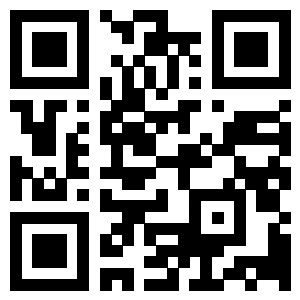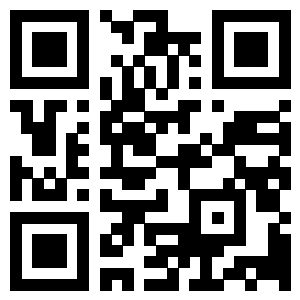2012年12月大学英语四级听力原文—短文(沪江版)
2012年12月大学英语四级考试已结束,新东方在线第一时间收集整理试题及参考答案,以下是2012年12月大学英语四级答案供考生参考。
Part III Listening Comprehension
Section B
Passage 1
Since I started working part-time at a grocery store, I have learned that a customer is more than someone who buy something. To me, a customer is a person whose memory fails entirely once he or she starts to push a shopping card. One of the first things customers forget is how to count. There is no other way to explain how so many people get in their express line, which is clearly marked 15 items or less, with 20, 25 or even a cart load of items. Customers also forget why they came to the store in the first place. Just as I finish ringing up an order, a customer will say, “Oops, I forgot to pick up a fresh loaf of bread. I hope you don’t mind waiting while I go get it.” Five minutes later, he’s back with the bread, a bottle of milk, and three rolls of paper towels. Strange is that seems customers also seem to forget that they have to pay for their groceries. Instead of writing a check or looking for a credit card while I am ringing up the groceries, my customers will wait until I announce the total. Then, in surprise, she says, “Oh no, what did I do with my check book?” After 5 minutes of digging through her purse, she borrows my pen because she’s forgotten hers. But I have to be tolerant of customers because they pay my salary, and that’s something I can’t afford to forget.
Q26. What does the speaker say about customers’ entering the grocery store?
Q27. Which customers are supposed to be in the express line?
Q28. What does the speaker say some customers do when they arrive at the check-out counter?
Q29. What does the speaker say about his job at the end of the talk?
Passage 2
The speech delivery style of Europeans and Asians tends to be very formal. Speakers of these cultures often read oral presentations from carefully retain manual scripts. On the other hand, American speakers are generally more informal relative to speakers and other cultures. American audiences prefer natural, spontaneous delivery that conveys a lively sense of communication. They don’t relay well to speakers who read from a manual script. If you use an outline of your ideas instead of a prepare text, your speech will not only sound more natural, but you will also be able to establish better relationship with your listeners and keep their attention. The language and style you use when making an oral presentation should not be the same as the language in style you use when writing. Well retain information, that is meant to be read, does not work as well when it is heard. It is, therefore, important for you to adapt retain texts or outlines for presentations. Good speakers are much more informal when speaking than when writing. They also use their own words and develop their own speaking styles. Whenever possible, they use short words. Listeners are appreciated when speakers use simple, everyday words in a presentation. One advantage is that it is much easier for speakers to pronounce short words correctly. Another is that long and sophisticated vocabulary choices make listening more difficult.
Question 30 to 32
30. What does the speaker say American audiences prefer?
31. What should one pay attention to when making an oral presentation?
32. What does the speaker focus on in the talk?
Passage 3
Let children learn to judge their own work
A child learning to talk does not learn by being corrected all the time. If corrected too much, he will stop talking. He compares a thousand times a day the difference between language as he uses it and language as those around him use it. Bit by bit, he makes the necessary changes to make his language like other people’s. In the same way, kids learning to do all the other things they learn without adult teachers, to walk, run, climb, ride a bike, play games, compare their own performance with what more skilled people do, and slowly make the needed changes. But in school we never give a child a chance to detect his mistakes. We do it all for him. We act as if we thought he would never notice a mistake unless it was pointed out to him. Soon he becomes dependent on the expert. We should let him do it himself. Let him figure out, with the help of other children if he wants it, what this word says, what is the answer to that problem, whether this is a good way of saying or doing this or that.
If right answers need to be given, as in mathematics or science, give him the answer book. Let him correct his own papers. Why should we teachers waste time on such tedious work? Our job should be to help the children when they tell us that they can’t find the way to get the right answer.
Question 33 to 35 are based on the passage you have just heard.
Q33 How does a child learn to do something according to the speaker?
Q34 What belief do teachers commonly hold according to the speaker?
Q35 What does the speaker imply about the current way of teaching?
- 相关阅读
TOPS
- 日排行/
- 周排行/
- 原创
- 日排行/
- 周排行/
- 原创
- 1 无锡学院2022年6月英语六级准考证打印入口|时间:6月1日
- 2 2022年6月英语四级作文热门话题及范文:教育不公平
- 3 泰州学院2022年6月英语六级准考证打印入口|时间:6月1日
- 4 吉林四级考试时间2022年上半年
- 5 2022年6月英语四级作文热门话题及范文:网络游戏
- 6 宿迁学院2022年6月英语六级准考证打印入口|时间:6月1日
- 7 2022年6月英语四级作文热门话题及范文:电力短缺
- 8 苏州城市学院2022年6月英语六级准考证打印入口|时间:6月1日
- 9 2022年6月英语四级作文热门话题及范文:手机的利弊
- 10 常熟理工学院2022年6月英语六级准考证打印入口|时间:6月1日







